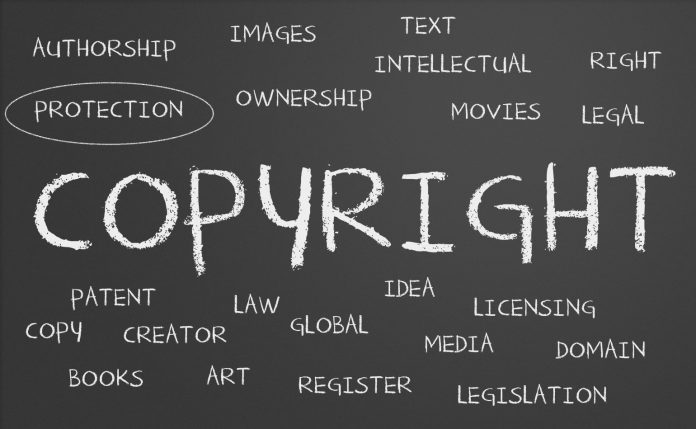This article is written by Shivangi Ghosh, from Amity Law School, Delhi. This article provides an overview of Copyright Protection in the United States and the United Kingdom.
Table of Contents
Introduction
Copyright Protection aims to protect the creator’s intellectual property such as books, songs, literary works, and any such artistic expression which can be subjected to misuse by an unauthorized third person for their benefit which can prove to be a loss for the real owner who creates such an Intellectual Property. The protection of the Copyright can go beyond National Territories. The application for registration of Copyright in the United States and the United Kingdom is different. It is a cost benefitting strategy to get the copyright registered for situations that can prove to be a wrongful loss for the rightful owner. Before going to the Courts for settlement in case of infringement, Arbitration settlement is advised for settling the dispute with the owner.
Protection of Copyright in the United States
In the United States, the Copyright shall be protected under the following conditions as laid under the provisions of the Copyright Act of 1976:
- If it is original.
- In a tangible form i.e. it can be easily produced and seen.
The copyright protection only protects the expression of the idea and not the idea itself; the owner cannot copyright facts, ideas, but only the way it has been presented if original can be granted protection.
To know more about Copyright please visit
Registration of Copyright protection in the U.S.
Registration of the Copyright is not necessary but only advisable for the following reasons:
- It can help proceed against any third party who infringes the owner’s Intellectual property.
- It can help establish public data which can be beneficial during cases of infringement.
- It allows the owner to get the compensation for the actual damages as well as the suit’s cost on the owner.
The owner of Copyright can change, modify, publicly display, distribute, and also authorize others to do the same. Work can be protected by the symbol of (©), mentioning the year of first publication along with the name of the copyright owner. This will help to solve any further legal actions if initiated by you or third parties relating to the involved Copyright.
Procedure for registration of Copyright in the U.S.
The registration in the United States of America can be done by:
- Filing Relevant Application form which can be sent either online mode.
- Or by sending the Application form to the US Copyright Office along with the mentioned fee.
Enforcement of Copyright Protection in the U.S
Any 3rd party that infringes the owner’s work by using or stealing, can be prosecuted by the Copyright owner by complaining about such violation. But there is a certain exception where it would not be considered infringement would fall under the category of “Fair Use” of the Intellectual Property some examples of Fair use are:
- Critical Research of the Owner’s Work,
- Report or commentary of the owner’s work,
- Used for research or academic purposes,
- Creation new scholarly ideas,
Although there can be certain situations that can directly affect the owner’s reputation and as the moral rights of the Intellectual property holder. The owner can prevent any distortion, mutilation, or destruction of his works which can show his work in a bad light.
Responsibility of the Copyright owner in the United States
The authorities can only help when the owner is aware and actively monitors the market to look out for any infringement if any. Intellectual Property law in the USA is complex and should only be used when other enforcement methods have failed to prevent an infringement. In case If litigation is necessary, then a lawyer should be hired to take action for you. The case can proceed either at civil courts, administrative tribunals or Federal Courts ( If foreign offender).
Investigations can be conducted against the foreign offender before the United States International Trade Commission (USITC). Registered Copyright can be useful in case when foreign material which infringes the copyright has come across the US customs and Border Protection which can by knowing that it infringes the IP rights of the owner, prevents any such material from entering the marketplace in the USA. It is a cost-effective strategy to enforce copyright protection in the US market place.
Alternative Dispute Resolution is also proved to be helpful in cases of both registered as well as unregistered IP rights. It helps the owners to enforce their rights cost-effectively by way of mediation and arbitration which can involve any entity either person, associations, or any such party who involves themselves in unauthorized use of IP.
Duration for Copyright Protection in the United States
The Copyright Act protects the owner’s work created which has been created on or after 1 January 1978 is protected for:
- The life of the author plus 70 years – only if the author is a person.
- 95 years from publication or 120 years from the creation of the work, whichever is shorter – if a corporation or other entity.
And for all the works created before 1978 shall be governed by the Copyright Act of 1909 which protects for an initial period of 28 years and with a chance of renewal. If the Copyright of the published work has not been renewed or expired, it shall be free for anyone to use and is considered to be in the public domain.
International Considerations: a network of treaties and Conventions
There is no such thing as international Copyright, as the Copyright is subject to national law and is territorial. There are numerous treaties one shall file to obtain maximum protection worldwide but there can be no way to get international copyright. The primary Convention that both the Countries are a party of is the Berne Convention of Protection of Literary and Artistic Works and is an important Convention for Copyright Protection. As per the Berne Convention, if the owner is from a member country, it shall be protected within 30 days of publication of the work without any formal prerequisites.
Protection of Copyright Law in the UK
The copyright legislation in the UK is the Copyright, Designs, and Patents Act 1988 (CDPA), which has been subject to certain amendments after it came into force. Copyright law in the UK comprises literary works such as scripts, academic writeups, dramatic such as plays, musical work, film, and music which shall be an expression of the owner which should be original and novel. The originality lies only in the expression of the idea and not the idea as it is the United States.
Registration of Copyright protection in the United Kingdom
There is no formal process for applying for registration of the Copyright but in the UK the day the work has been created it shall be considered protected under Copyright law and the owner shall be the author who created such work. There have been recommendations made by the British Copyright Council that the self-recording in case of creation of works be done to keep proof of the work and the date it came into existence so that whenever there is a case of infringement by the third party. Self-recording can act as proof in the case and prevent any failure to prove. It can be done in various way such as:
- Sending a copy of work by post to themselves and keeping it sealed, by putting proper dates which shall mention the date of creation of the work.
- Or by making a copy and sending it to the professional or legal advisor of the owner or any entity that owns it.
- Or by employing any private companies that offer copyright registration services which can help to prove your ownership in case of a dispute. It shall be noted that these services are not connected to the UK copyright governmental authority but a separate private entity to help sought future disputes.
Enforcing Copyright protection in the United Kingdom
The copyright owner or licensed owner can only institute a suit for infringement in the Courts of the UK. It covers situations like theft and mutilation of the owner’s work. The person who has not been authorized to use copyright work can be prevented from doing so by UK courts. But there is a certain exception of Usage that can be permitted are:
- Non-commercial research and private study that is the academic purpose.
- Criticism, review, and reporting of current events which shall include news commentary and reporting.
- Educational purposes for teaching and writing.
- Helping disabled people gain access.
- Parody or caricature where the idea can be used but original expression shall be done to avoid infringement.
The exceptions are called fair Dealing in the United Kingdom and Fair Use in the United States. Keeping in mind the facts of the case, and if the person who used the work has dealt fairly but does not come under the specified expression of fair dealings, the Court shall still see if the use is fair dealing and reasonable without any intention of harming the owner. There is no requirement to include a copyright notice in case of infringement but it is sensible to warn the third party before the institution of any suit. Another way to protect the work is by adding the symbol of the Copyright logo, The copyright owner can also add a symbol of the copyright logo (©), the owner’s name, and the year the work had been published made at the bottom of the relevant work so that the parties know that the suit can be instituted against them if there is any infringement done about that Intellectual Property.
The application process of Copyright registration in the U.K.
Copyright in the United Kingdom arises automatically when the author creates the work, and there is no need to file any particular form as it can be done in the US. But to have proof the Self-recording has been recommended and if it is proven that the work is published by the author and not the infringing party, the court shall instruct the infringing party to pay for damages.
The proof can also be done by emailing or sending work to the UK Copyright office, just for the sake of evidence and creating bona fide evidence in case of future disputes regarding the intellectual property of the owner.
Protection limits of the Copyright in the U.K.
Copyright terms of protection are similar to the US copyright terms:
- The authors of the literary work, dramatic works, and musicals, or any such artform shall be protected after 70 years after the death of the original owner.
- The sound recording shall be protected after 70 years after the first publishing of any such work in the market.
- The Broadcasts have copyright protection for 50 years after the first broadcasting
- Films enjoy copyright protection until 70 years after the death of the last director, the composer, or the author,
- Published work in the magazines or other periodicals published shall enjoy copyright protection until 25 years after the end of the calendar year in which it was first published.
The copyright owner has the right over his created work that is used in the broadcast, copying, modifying, or even authorizing others to do so. The author also often has the right to be identified as the author and can reject any fair dealings and say that it harms the reputation of the author.
Conclusion
Although it has been mentioned there is no need for registration of Copyright. Copyright owners should make it a point to register as it is advisable and can prove to be beneficial in case of potential future disputes. In the United Kingdom, the copyright is registered as soon as its created as it is the case in India but in the United States, the emphasis is more on the registration process. The registration of Copyright cannot be done internationally, but the Filing of the copyright by a member Country of any conventions grants copyright in the other member countries of the Convention. Internationally speaking, It is safe to say that the Berne Convention is an important treaty and other copyright protections are only based on bilateral agreements between certain specified countries and which have different sets of provisions to be regulated by.
References
- https://www.copyright.gov/title17/title17.pdf
- https://www.copyright.gov/history/1909act.pdf
- https://www.copyright.gov/help/faq/faq-register.html
- https://www.lexology.com/library/detail.aspx?g=9dfc5e21-91c0-494e-986a-0b1943aa81de
LawSikho has created a telegram group for exchanging legal knowledge, referrals and various opportunities. You can click on this link and join:
 Serato DJ Crack 2025Serato DJ PRO Crack
Serato DJ Crack 2025Serato DJ PRO Crack











 Allow notifications
Allow notifications


